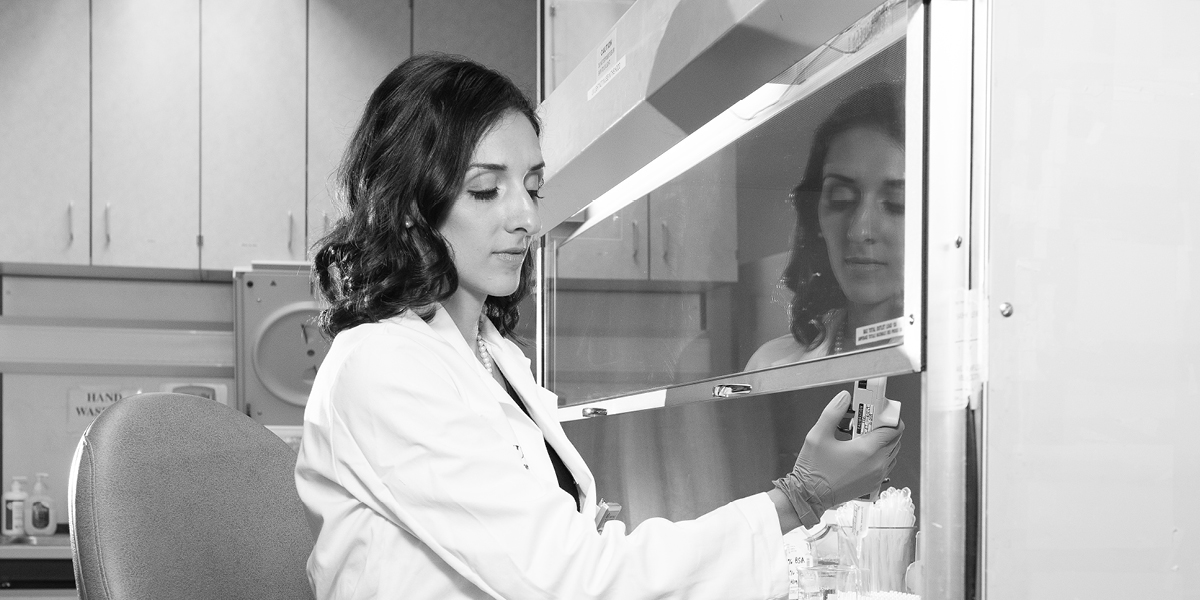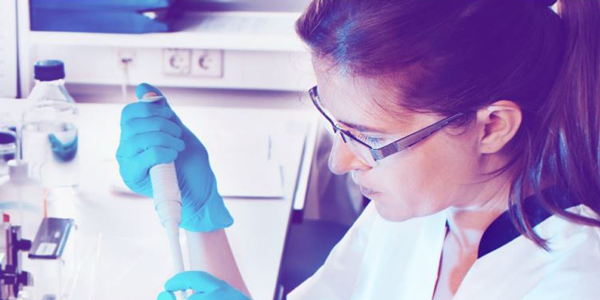
The laboratory is suffering from a critical shortage of pathologists and laboratory professionals, which has profound implications on patient care. To address the acute workforce deficiencies, some organizations are taking action to create a more diverse and robust pipeline of needed employees by “growing their own” laboratory teams—developing training programs within their own institutions and in partnership with outside organizations to fill the immediate needs they are seeing in their own communities. ASCP provides content and resources to support growing your own laboratory team and to address your laboratory's current needs.
Growing Your Own Laboratory Team: Harvard’s Boston Children’s Hospital Internship Program
In 2009, John Baci, Executive Administrative Director of Anatomic Pathology at Boston Children's Hospital, developed an internship program that connects high school juniors and seniors with hospitals and laboratories to teach kids about careers in the laboratory. The internship is a win-win for all involved: hospitals and laboratories get interested young students to help them do work and students get exposure to the laboratory and the career possibilities that come along with it. Read on to find out more about this long-running, successful program, and tips to start one in your own institution.
John Baci and colleagues from Boston's Children Hospital discuss their grassroots efforts to help improve the laboratory workforce pipeline.
The first in a series of three webinars on how to "grow your own” team of medical laboratory professionals, this webinar discusses methods various laboratories are using to develop their own team of laboratory professionals to meet workforce shortages. Moderated by Susan Harrington, head of the ASCP Workforce Steering Committee with panelists from ARUP Laboratories, Loyola University Chicago, and University of Pennsylvania Pearlman School of Medicine.
The second in a three-part series, this webinar looks at the significant impact that thinking outside the box can have on growing your own laboratory workforce to address the severe need for more laboratory professionals. Our speakers address engaging with high school STEM students, developing a phlebotomy school specifically for a health system, and implementing various outreach strategies that have helped decrease turnover and open positions in the laboratory.
The third in a three-part series, this webinar focuses on how resource-limited settings like rural communities are profoundly impacted by the workforce shortage and may have fewer local options. The speakers discuss establishing a grow your own program in underserved areas, rural areas, or communities that lack laboratory professionals.
Sponsored by ASCP, ASCLS, ASCP BOC, and NAACLS, this webinar discusses the standardized nomenclature for programs teaching medical laboratory science (MLS) at the bachelor’s degree level. Panelists share their experiences of changing from clinical laboratory science (CLS) to an MLS program with a focus on university-based programs, consideration of best practices, stumbling blocks, and finding support.

Medical and public health laboratory professionals are critical to quality patient care, with many, if not most, medical diagnoses dependent on their work. Unfortunately, these essential medical professionals are in short supply. The newly established Medical and Public Health Laboratory (MPHL) Workforce Coalition is drawing attention to the laboratory and raising visibility of careers in laboratory medicine.

Elevating the visibility the pathology and laboratory medicine workforce is a priority for ASCP. In support of this, ASCP partnered with the University of Washington's Center for Health Workforce Studies on the groundbreaking study, The Clinical Laboratory Workforce: Understanding the Challenges to Meeting Current and Future Needs. This research played a key role in the development innovative strategies to bolster recruitment and retention of laboratory professionals, as discussed in the study's Blueprint for Action.

ASCP partnered with the Centers for Disease Control and Prevention to develop the Negotiation & Advocacy Toolbox to provide practical tools for laboratory professionals demonstrate the value of their laboratory within their institutions. The toolkit will comprise five pillars, with resources on Laboratory Visibility, People and Culture, Quality, Service and Growth, and Financials.

With a dedication to advancing the profession of pathology and laboratory medicine. ASCP has developed multiple resources to help pathologists and laboratory professionals advocate for their laboratory, and raise the visibility of the laboratory for patients, healthcare providers, and hospital administrators.